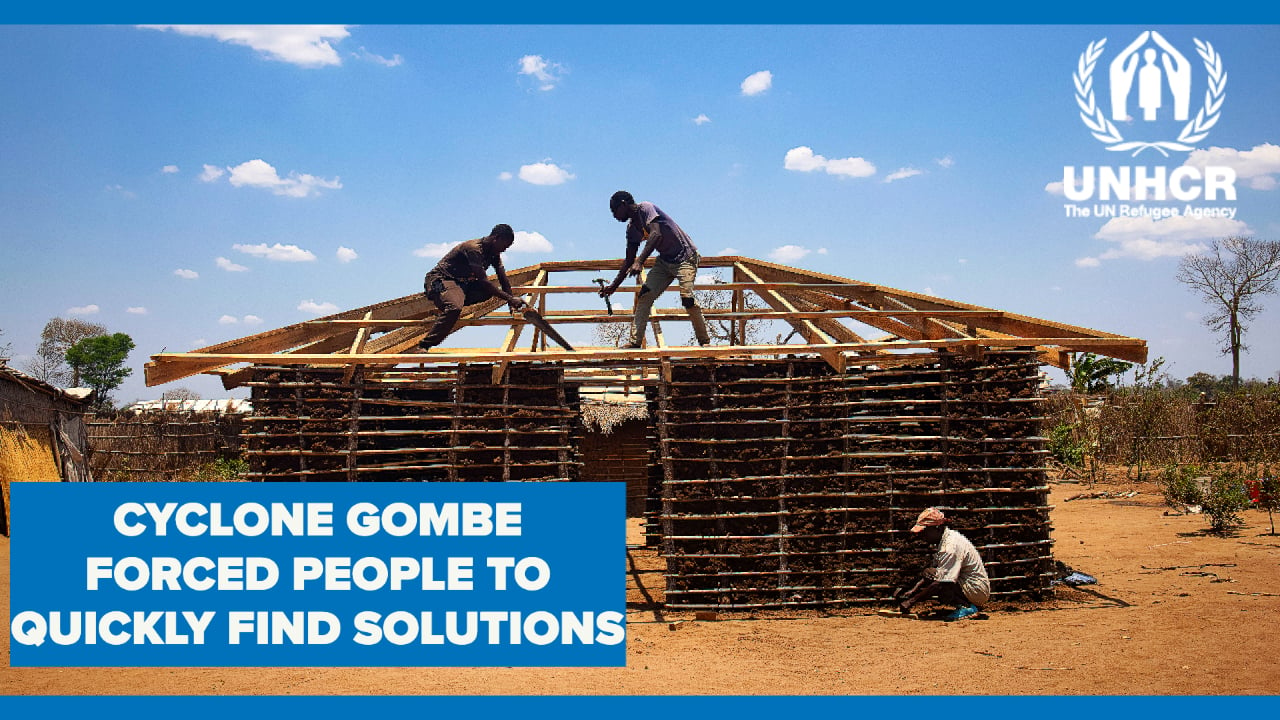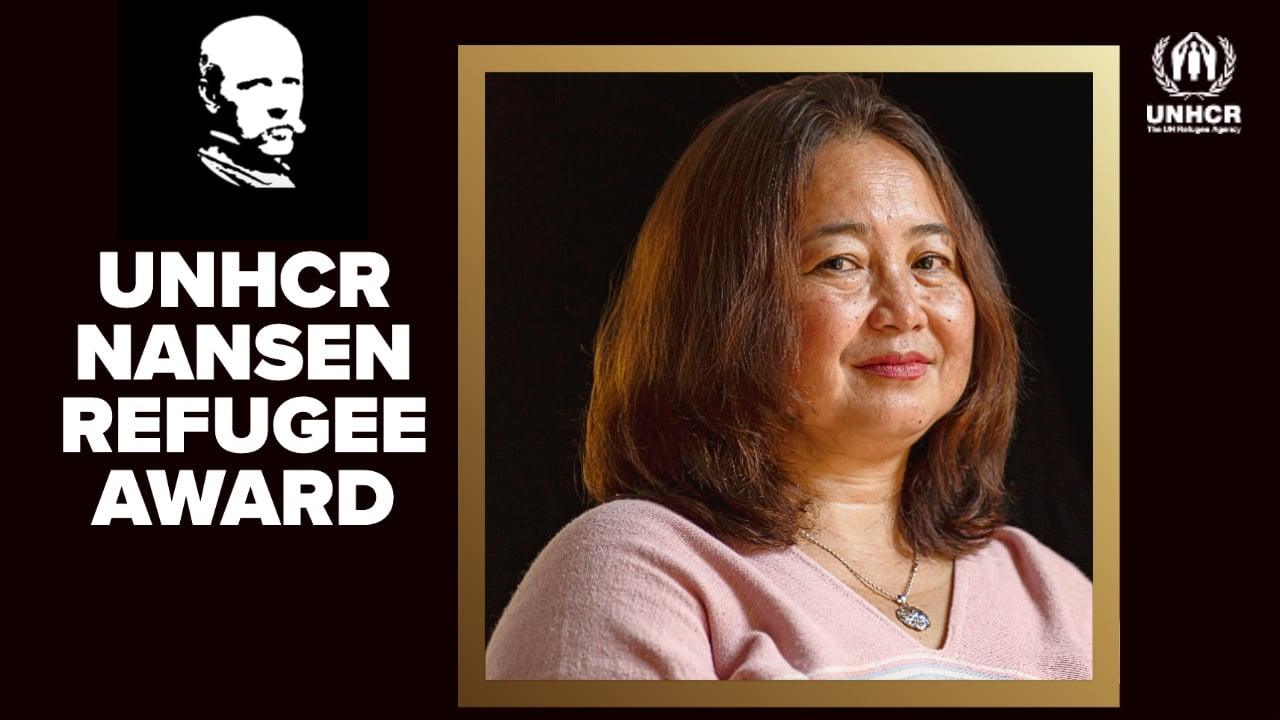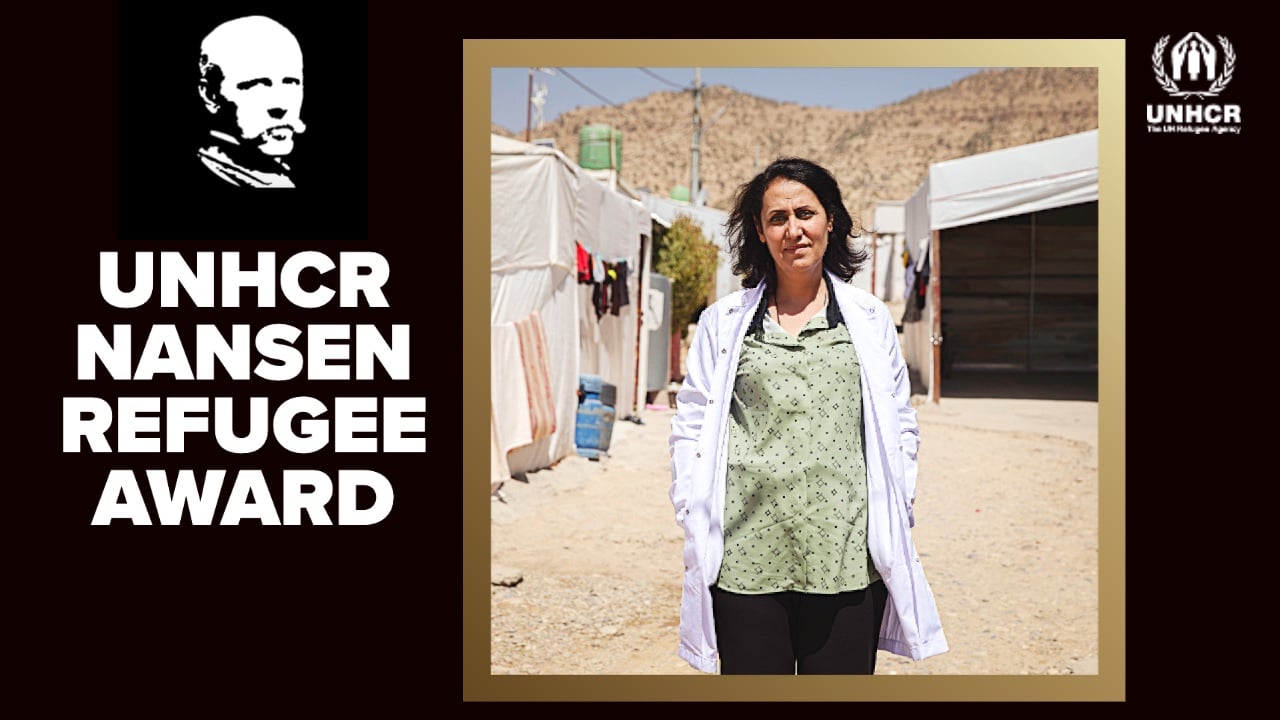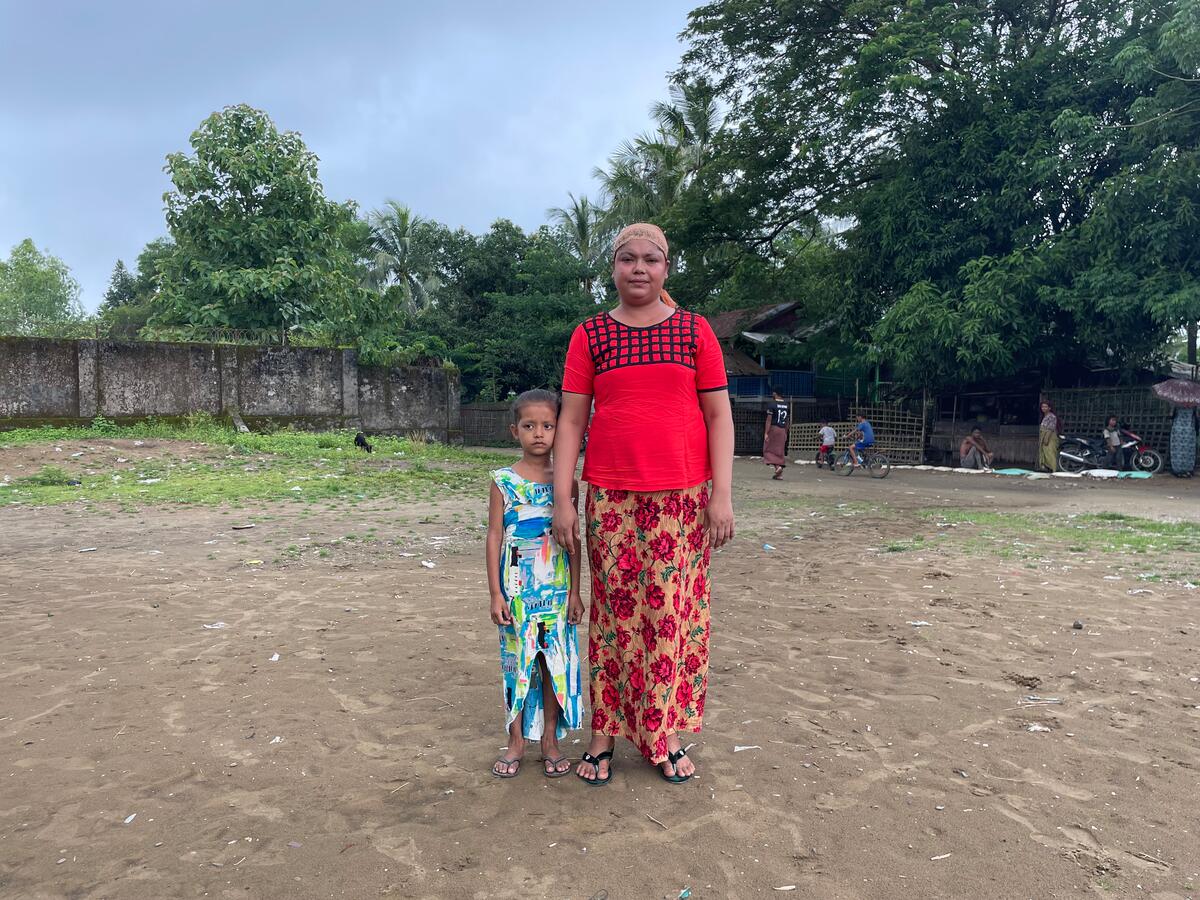Colombian IDPs' medical woes treated with new "Path to Health" scheme
Colombian IDPs' medical woes treated with new "Path to Health" scheme

SOACHA, Colombia, Feb. 22 (UNHCR) - Seven dollars may not sound much for a medical consultation, but for 33-year-old Nilson, a displaced southern Colombian living in one of the capital's poorest suburbs, seven dollars means food for himself, his wife and their two children for a week.
Six years after he was forced to flee his home village to escape violence by armed groups, Nilson, like most displaced persons living in the sprawling neighbourhood of Altos de Cazucá on the outskirts of the Colombian capital, Bogota, is desperately poor and has still not found a way to earn a regular income.
Altos de Cazucá is home to tens of thousands of internally displaced persons (IDPs). Poverty is overwhelming, state and public services are few. Until very recently, Nilson would have had to walk hours to get medical treatment at the nearest hospital. Taking a bus would have been much quicker, but Nilson can't afford even the cheap fare. Once at the hospital, he would usually receive only scant attention.
"Before, I needed a two-hour walk starting at three in the morning to get to the nearest hospital and I would wait usually four hours just to see the doctor, without getting medicines," Nilson said.
But, now that's beginning to change for the better. The Soacha municipal administration, with the help of the World Health Organization (WHO) and UNHCR, has set up a network integrating all of Soacha's medical institutions, ensuring IDPs can get their medical needs attended to and guaranteeing coverage of their medical expenses with funds from the national government.
The "Path to Health" ("Ruta de la salud") as the network initiative is called, is a concrete example of what UNHCR's Assistant High Commissioner for Protection Erika Feller described during a recent visit to Colombia as "opportunities to make real progress in assistance to displaced persons, in a way that you don't see in places other than Colombia."
In Colombia, there is a framework for the protection of IDPs with the right to medical assistance enshrined in a national law governing IDPs' affairs - the only one of its kind in the world. But hurdles in the system have made its implementation difficult. It's in this grey area between a comprehensive protection framework and the harsh realities of daily life for the displaced that the UN refugee agency is helping to bridge the gaps and make a difference.
Colombia has more than two million IDPs, more than half of whom live in 17 big cities around the country. Their lives are tough, facing malnutrition, disease and an unemployment rate higher than 50 percent, as well as the relentless pressure of a violent conflict that often continues to plague them even after they have fled their homes.
Since 2004, while maintaining its protection role, the refugee agency has been putting greater emphasis on helping local authorities integrate displaced persons and guarantee them access to basic rights such as education, health care and jobs.
Soacha is a good example of what has been achieved to date. UNHCR opened an office there in January 2005 to help develop a local response to the challenges of assisting IDPs and help them find long-term solutions.
Three months later, at the refugee agency's instigation, all the candidates running for mayor signed an agreement to increase efforts to guarantee access to health care and education for displaced persons, as well as protection for their leaders. In September, the House of Rights - a joint project between UNHCR and the Colombian Ombudsman's Office - was inaugurated in Altos de Cazucá to provide legal and medical support for IDPs, as well as advice in such areas as housing, job training and income generation alternatives.
For Nilson, this intensified work on improving the rights of displaced people to public services has paid off with faster access to health care and free medicine. Recently, he came to the House of Rights to see a doctor about a persistent stomach ache. It took only five minutes for the doctor to make a diagnosis, and two more minutes to establish the link between the disease and displacement. Nilson's gastritis was due to his difficulty in eating regularly and the poor quality of his diet - hardly surprising, since he wakes up every morning facing the prospect of finding enough money to feed his family for one more day. Getting only three hours of clean water supply every fourth day only compounds Nilson's health problems.
Many of the displaced people waiting in the House of Rights corridor on that February morning face exactly the same problems - men and women looking for job training, advice on housing, or worried about the constant intrusion of violence into their lives. In Soacha, like in the rest of Colombia, the overall context of displacement remains harsh. Needs are still far greater than achievements, even in the area of health.
"A significant number of displaced persons still face problems in getting non-emergency attention if they are not registered in the government's displacement databases," Doctor Noemi Orjuela acknowledges at the hospital.
The situation is particularly difficult for IDPs who do not have the identity documents required to get treatment approved. Lack of documentation is a very serious issue for IDPs and since 2000, UNHCR, in a joint project with the National Civil Registry, has provided documents to over 300,000 displaced persons and people at risk all across Colombia, helping them gain access to basic services.
Progress is slow, but it is happening. Nilson was seen by a doctor and got his medicine for free. Six months ago, that wouldn't have happened. But, what happens six months from now is still uncertain as the municipality lacks the necessary funds and depends upon the central government to pay for IDPs' medical expenses. But for now at least, the state's response to Nilson's needs has improved.
"In internal displacement situations the main responsibility lies with the state," says UNHCR's representative in Colombia, Roberto Meier. "We know the state faces severe constraints in trying to fulfil its duties to IDPs, but we're there day by day to give a hand, to help develop new capacities and, eventually, to make things better."
By Gustavo Valdivieso in Bogota, Colombia









